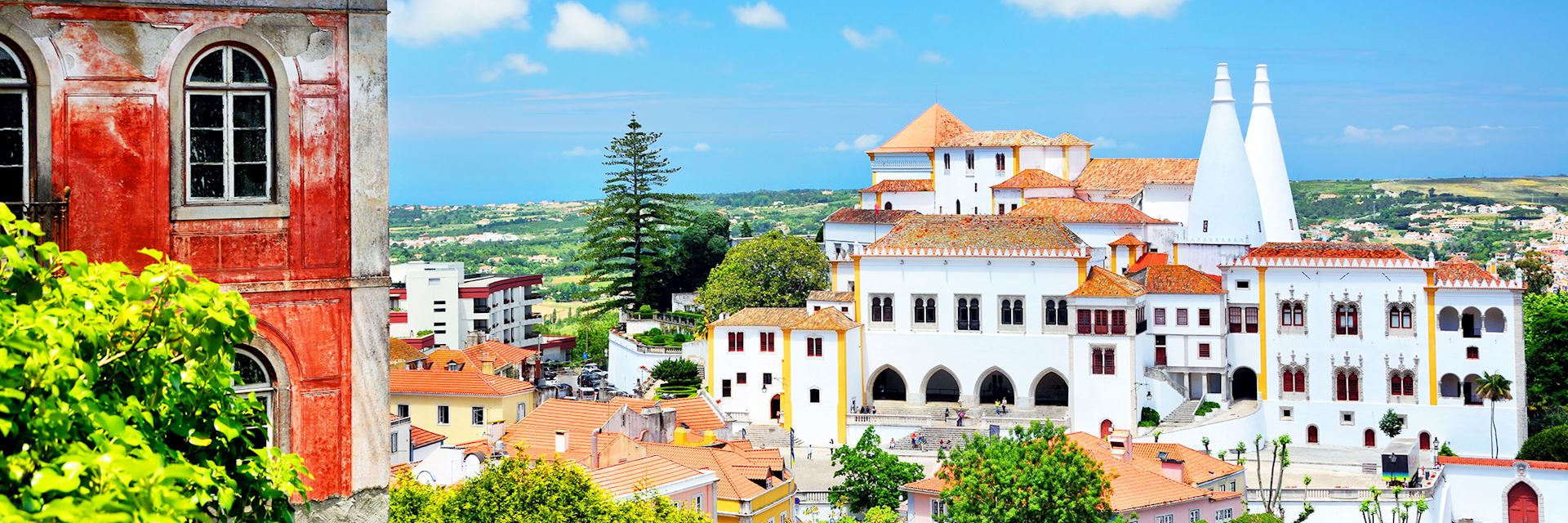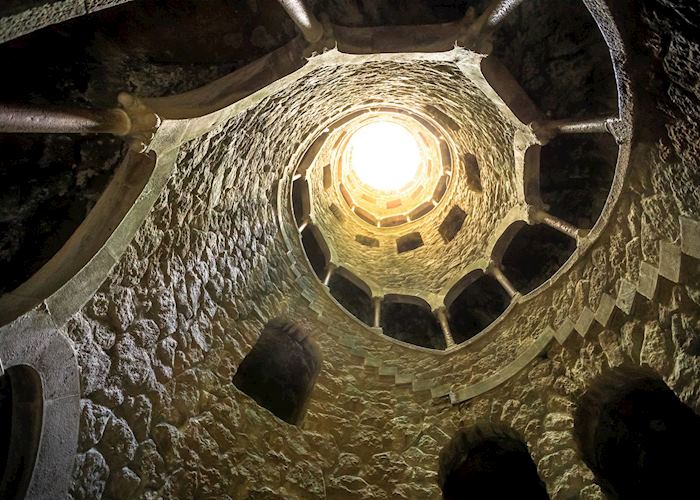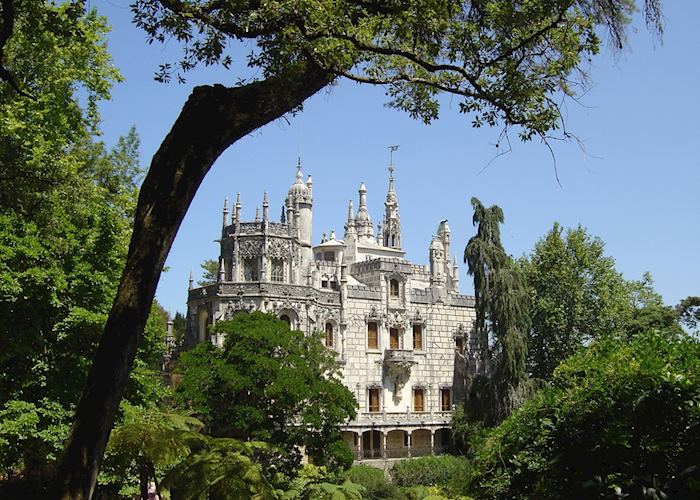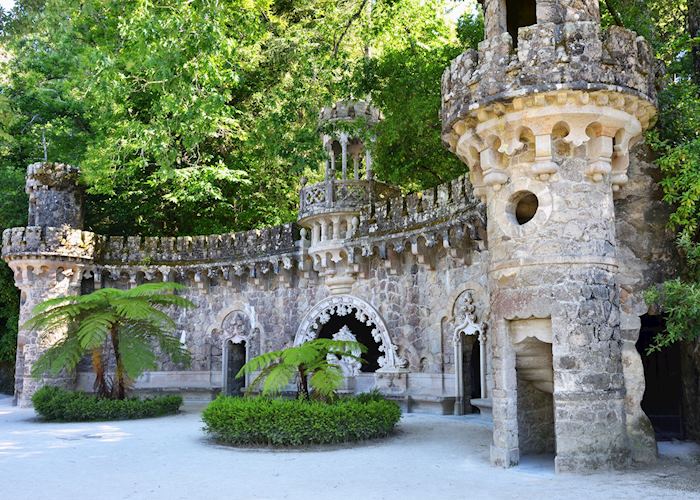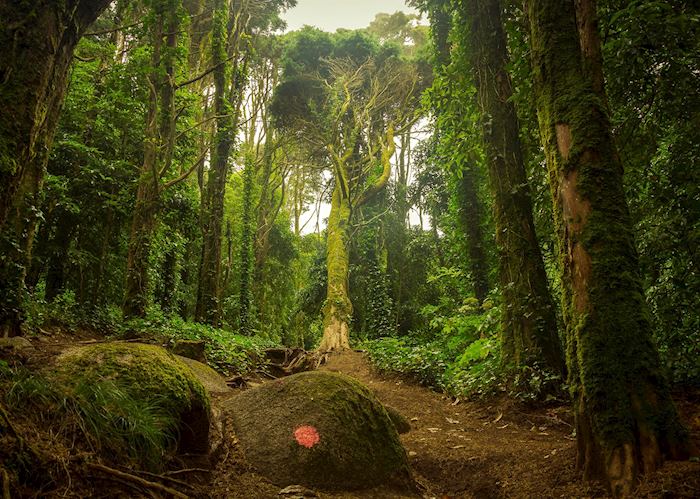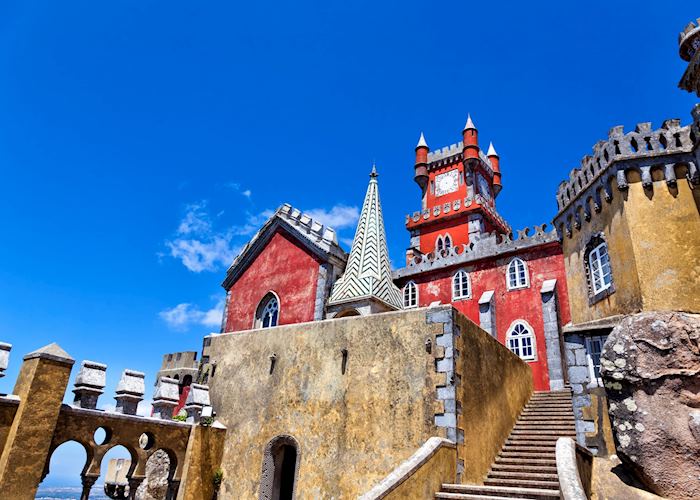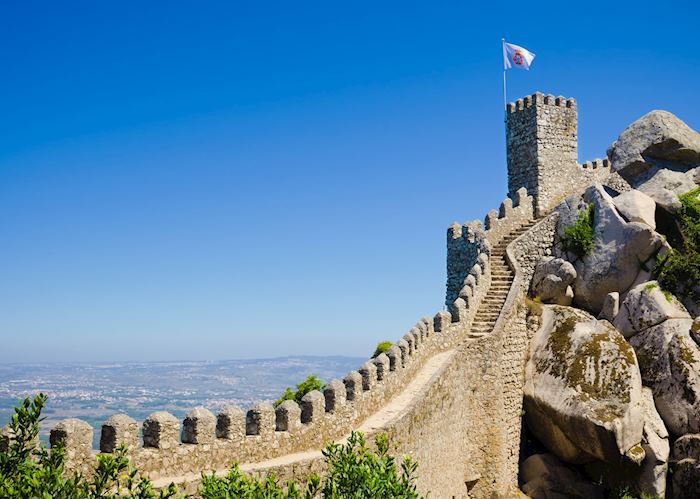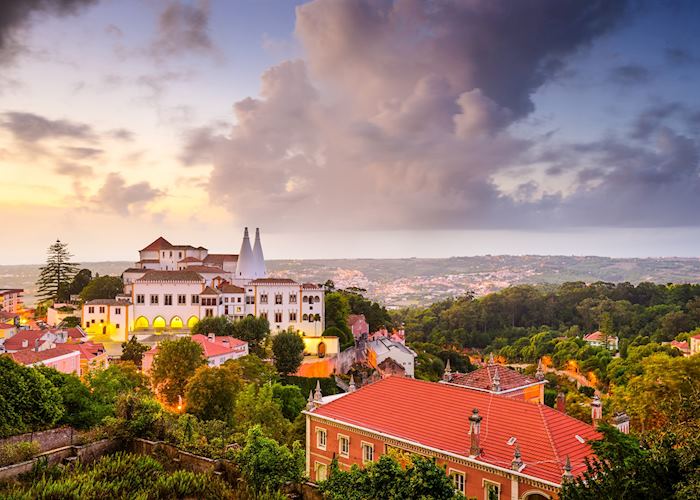Central Sintra-Vila has been acknowledged by UNESCO for its importance as the first hub of European Romanticism. Gothic, Renaissance, Moorish and Egyptian influences blend to create a cultural landscape of parks, gardens and monuments that, when taken together, seem like they’re torn from the pages of a novel.
Spain & Portugal specialist TaliaLike most other people, I come to Sintra for the palaces. As a summer retreat for Portuguese aristocrats and Moorish rulers, it's a place where the rich have showcased both fashion and wealth for centuries. The architecture here completely reflects those big personalities.
Things to see and do in Sintra
Pena Palace (Palácio Nacional da Pena) and the Moorish Castle
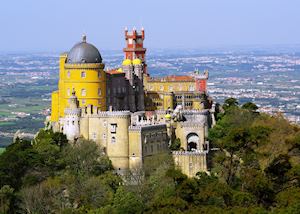 High on a hill, this pink-and-lemon castle cuts a flamboyant silhouette of crenellated towers, keyhole arches and onion domes. It was commissioned in 1840 by Prince Ferdinand of Saxe-Coburg and Gotha (husband of Queen Maria II) and designed by his fellow countryman Baron Ludwig von Eschwege.
High on a hill, this pink-and-lemon castle cuts a flamboyant silhouette of crenellated towers, keyhole arches and onion domes. It was commissioned in 1840 by Prince Ferdinand of Saxe-Coburg and Gotha (husband of Queen Maria II) and designed by his fellow countryman Baron Ludwig von Eschwege.
The approach to the palace takes you on a winding road through the dense greenery of Parque das Merendas. A whimsical complement to the castle, it’s filled with specimen trees, elegantly decaying follies and romantic vistas.
The palace ramparts offer what might be the best views of Sintra. You can also glimpse the Moorish Castle (Castelo dos Mouros), a tumbledown 9th-century fortification. Neglected after the Crusades, it was restored as romantic ruins in the 19th century.
Quinta da Regaleira
A wildly eccentric Gothic curiosity filled with secret passages and mystic symbols, the Quinta da Regaleira is a large-scale folly built at the turn of the last century by António Augusto Carvalho Monteiro, aka ‘Monteiro the Millionaire’.
The palace’s neo-Manueline façade is festooned with pinnacles, gargoyles and traceries, with an octagonal tower rising from one corner. It’s a fantasist’s playground, designed to incorporate imagery and symbols associated with Freemasonry, tarot, alchemy, the Knights Templar and the Rosicrucians.
As eccentric as the house is, the surrounding parks are even more elaborate and strange. Narrow footpaths twist past overflowing gardens, lakes and limestone caves. You’ll also find a series of secret tunnels that lead to grottoes illuminated by fairy lights. Most arresting are a pair of dry wells — their depths reached by a nine-tiered stone spiral stairwell with moss-covered arcades — where occult initiations may have taken place.
National Palace (Palácio Nacional de Sintra)
In the heart of Sintra proper, this palace was a royal residence until 1910. It’s known for its pair of conical chimneys, the most discernible landmark in the city. The gleaming white exterior is striking for its combination of minimalistic Gothic and Manueline styles, combining richly ornamented windows with severe lines and expanses of plain walls.
The interior, however, is the main attraction. It’s decorated with 15th- and 16th-century azulejos (polychromic glazed earthenware tiles). Both the swan room and the magpie room are bedecked with pictures of their namesake bird on the ceiling, and the elegant mermaid room features several of the seductive sirens painted on wooden panels overhead. The twittering magpies are said to represent the gossipy ladies of the court.
The restored kitchens, which lead to those twin chimneys, are huge and fully stocked with a palace-worth of copper pots and pans.
The best time to visit Sintra
Sintra is a year-round destination, but we suggest visiting in spring (March to May) and autumn (September and October). At these times of year, the days are warm and sunny, but not too hot.
who's been there
Start planning your tailor-made trip to Sintra by contacting one of our Portugal specialists
-
01993 838 92501993 838 461
- Make an enquiry

